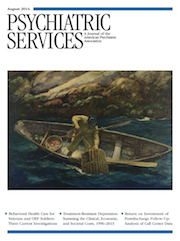Resilience and Mental Health: Challenges Across the Lifespan
The book Resilience and Mental Health is a comprehensive exploration of how resilience occurs, often quite commonly, when one is faced with crises, trauma, and adversity. Edited by Southwick and colleagues, the book cites current research to investigate central questions of what makes people, families, and communities adapt to many different and extreme stresses. In the process, it gives boundaries to the sometimes elusive concept of resilience. The book should help mental health professionals and critical thinkers better understand resilience. This is not a clinical book. Its stated goal is to summarize current research on adaptive responses to stress from various domains. Although the book occasionally discusses interventions that might promote resilience, it provokes thought more than offers techniques to bring to the office.
The volume’s strength is the juxtaposition of ideas that make us consider how factors as diverse as the biological stress response, cognitive appraisal, self-efficacy beliefs, spirituality, and social support affect our ability to face crisis. The more provocative essays explore the evidence and mechanisms behind how these factors might affect resilience. For example, might social support directly affect stress physiology, promote coping behaviors, or increase perceptions of control or self-esteem? Why might perceptions of social support matter more than actual measurements of social interactions or connections?
The book sometimes reads as if from a field trying to prove itself. Some chapters discuss too many nuances of the evidence or spend too much time conceptually framing their arguments, which overshadows the implications for resilience. This is especially true because many chapters open by developing their definition of resilience, which varies subtly and significantly from essay to essay. The book’s preface discusses at least eight definitions of resilience used in the research. This lack of a consistent definition creates some difficulties in applying ideas from chapters because some discuss how people with mental illness remain symptom free, others discuss how people develop symptoms and later recover, and still others focus primarily on functioning without regard to symptoms.
The chapters that explore resilience in specific situations, such as grief, rape, disaster, or poverty, provide welcome balance to the more general chapters and are another strength of the book. Their specific evidence and conclusions are especially compelling and the most likely to generate practical ideas. Chapters with a family and community focus are refreshing, intriguing applications of resilience to groups of people. All the chapters stand independently, and the ending chapters about interventions to promote resilience weave together themes from preceding chapters.
The book effectively gives relevant research and ideas for specific interests and situations, and will serve readers who prefer to skip to the chapters of most interest and relevance to them. The alternate experience of reading the book from cover to cover is like taking a college survey course with a different professor for each lecture. There is both repetition of ideas and research as well as varying takes on the field. Although this presentation meets the objective of the book or a survey course and may pique the reader’s interest, this reader wishes that there was greater consensus around resilience from which to research further and solidify clinical interventions with the most promise. The parting sense is that there is still much to be investigated and written about how people adapt to extreme stresses. We have to develop the most effective interventions to promote the resilience that could help so many.



